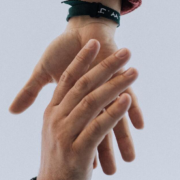Does Medicaid Cover Opioid Treatment?
Opioids are highly addictive, and this addiction has become a nationwide epidemic in the USA. In 2017, about two million adults below the age of 65 in the U.S. were diagnosed with opioid use disorder. The substance has potent pain-relieving qualities, hence the biggest reason for its abuse. As people with Opioid Use Disorder (OUD) build a tolerance to their usual dosage, they need to increase it constantly. This creates dependency and, subsequently, addiction.
Medicaid covered about 40% of the two million non-elderly adults diagnosed with OUD. Does Medicaid cover opioid treatment? Medicaid offers health insurance and access to the required medical care for persons with OUD. In May 2019, 36 states and Washington, D.C., expanded Medicaid to cover people with incomes up to 138% FPL. Colorado is one of these states.
Including behavioral health services is a requirement of all Medicaid expansion benefit packages. This includes treatment for substance use disorders. And so, Medicaid clients dealing with OUD are more likely to access opioid treatment than people with other coverages.
Contact us at the Alpine Recovery Center for more information. We have the best Colorado Medicaid rehab programs. Call us at 720-704-2883.

What is an Opioid Treatment Program?
There are presently three types of medications approved by the FDA to treat opioid use disorder. Their generic names are methadone, buprenorphine, and naltrexone.
An Opioid Treatment Program (OTP) refers to a highly regulated methadone clinic that usually offers access to alternative medication-assisted treatments. OTPs are still the only locations with authorization to dispense methadone to treat opioid use disorder.
Qualified prescribers at (non-OTP) medical clinics can write prescriptions for buprenorphine and naltrexone and, in some circumstances, provide dispensing services.
What is The Most Common Treatment for Opioid Use Disorder?
Medication-assisted treatment, also known as MAT, is the most common treatment option for opioid use disorder (OUD). MAT is a treatment that combines the use of either of three drugs (methadone, buprenorphine, or naltrexone) with counseling and behavioral therapies.
Types of Rehabs That Colorado Medicaid covers
Medicaid offers opioid addiction treatment and recovery solutions for people with Opioid Use Disorder. Below are some of the types of rehab services.
Family Therapy
Everyone in the family, not just the person struggling with OUD, can sometimes feel the effects of opioid addiction. Thankfully, there are recovery centers that integrate entire families into the rehabilitation program.
Detoxification Monitoring
Detoxification helps the body eliminate toxins and handle withdrawal symptoms better. The detox process takes a while, but the results are worth the wait.
Individual Counseling and Therapy
Medicaid offers individual therapy to those struggling with OUD to enable a wholesome and healthy rehab experience. In addition, individual counseling keeps the client engaged in their recovery journey.

What to Expect From Opioid Addiction Rehab Program
Effective rehabilitation programs usually take about 90 days and are built around activities to overcome substance use disorder (SUD) progressively. This progress happens gradually; it does not come quickly. Rehab programs require specific information about people struggling with SUD to help them out of it. They include physical and mental records, family background information, and data on the abused substance.
Medicaid Coverage of Medications for Alcohol and Opioid Use Disorders
Reportedly about 12% of Medicaid recipients struggle with substance use disorders. In addition, there is a current prescription drug pandemic and increased demand for alcohol and opioid dependence treatment. And so, various states have turned their attention to providing substance use disorder treatment services, including pharmaceuticals.
Medication-assisted treatment (MAT) is the gold standard for treating OUD, which combines counseling and one of the three drugs mentioned earlier.
Some of the substance abuse disorder treatment options covered by Colorado’s Medicaid programs include
- Outpatient care
- Residential care
- Prescription medicines,
- Rehabilitative services.
Colorado’s Medicaid program pays for at least one of the three MAT drugs. In addition, whether provided with MAT or as stand-alone treatments, services such as counseling and case management are typically covered by Colorado state’s Medicaid programs.
The following treatment options can be provided at the discretion of the state:
- Detoxification
- Intense outpatient treatment
- Counseling
- Peer support
- Supported employment
- Partial hospitalization
- Inpatient treatment
The Role of Medicaid in Opioid Treatment Programs
The opioid epidemic continues to wreak havoc in many parts of the country. Medicaid offers solutions to increase coverage and treatment choices to stem the tides.
Some of the efforts being made include:
- Expanding coverage of MAT medications and therapy
- Looking for waivers to allow payment for opioid treatment services provided in IMDs
- Increasing the coverage of community-based benefits to support treatment and recovery
- Better integrating behavioral health services, including services for substance use disorder, with physical health services.
Does Medicaid cover Methadone in Colorado?
Colorado Medicaid covers methadone under the Managed Care (MC) and Fee-For-Service (FFS) plans. Federal law requires that patients be enrolled in, or have verifiable proof of, substance use disorder (SUD) counseling to qualify for methadone coverage in OUD treatment.

How to deal with Opioid Withdrawal Symptoms
Opioid withdrawal symptoms are severe. However, they can be managed safely with medically supervised treatment, which includes medication, counseling, and support. Medications like methadone and buprenorphine treat withdrawal symptoms (Subutex). Opioid maintenance treatment with these drugs is also an option. Also, clonidine can be used to treat withdrawal symptoms like restlessness, irritability, muscle pain, profuse perspiration, a runny nose, and cramping. However, having this does not help in reducing cravings. A MAT program may also prescribe treatments to deal with nausea, insomnia, and diarrhea.
Get Help From Alpine Recovery Centre Today
Aspen Ridge Recovery Center is one of the top Medicaid Rehabs in Colorado. Patients with Medicaid coverage can access the center’s opioid use disorder treatment services. The services offered at Aspen Ridge Recovery Center extend beyond just substance misuse. Instead, they concentrate on the root causes of substance abuse to help find recovery solutions tailored to the client’s specific case.
Alpine Recovery Center’s mission is to provide quality, affordable care to those who need it. For additional information about our Medicaid-funded SUD treatment programs, please call us at 720-704-2883.










